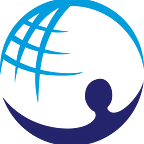In a pandemic and beyond, we must provide women and girls with rights-based, innovative, and high-quality Sexual & Reproductive healthcare
Let us start by stating the facts: Unintended pregnancy and abortion are common experiences; abortions take place every day in every part of the world. WHO reports that over half of all unintended pregnancies end in abortion, with around 56 million abortions taking place globally each year. In addition, over 190 million women worldwide want to avoid pregnancies but are not using any contraceptive method, highlighting the massive unmet need for contraception at a global scale. In many countries in Africa, the numbers are disproportionately higher.
The right to decide if and when to have a child is a basic human right, and central to reproductive justice and exercising choice. In the wake of the COVID-19 pandemic however, the forced closure of clinics, disrupted supply chains and limits placed on movement have created massive disruptions to Sexual and Reproductive Health (SRH) services including abortion and contraception in several countries. In the United States, some states have gone as far as tagging safe abortion as non-essential, with the US Agency for International Development (USAID) asking WHO to stop describing SRHR as an essential service.
Marking SRH services including safe abortion as non-essential creates unnecessary barriers for women to obtain medical care. Women might have to miss appointments for scheduled contraceptive injections or replacement of their implants and IUDs (intrauterine devices), and those desperately trying to end a pregnancy may be forced to endure unnecessary waiting times. This only increases the risk of complications and cost for the patient, and there is no evidence that waiting periods improve abortion safety. Ultimately, by not recognising abortion care as an essential service, access to early, safe abortion will reduce and abortion through unsafe methods will increase, in turn increasing maternal morbidity and mortality.” Putting a pause on SRH services during COVID-19 will negatively impact the most vulnerable women and girls. Moreover, restricting access to safe abortion does not reduce its occurrence; It just makes it unsafe, as women and girls who desperately need these services will resort to dangerous and clandestine services through underground networks.
We cannot let this happen. We owe it to the millions of women and girls in some of the hardest-hit countries with limited resources to keep our doors (and phones) open to guarantee continued access to safe services. At the International Planned Parenthood Federation (IPPF), this is exactly what our global network of Member Associations (MAs) and service providers have been inspired to do. While the COVID-19 pandemic has created/generated significant challenges and increased barriers to accessing SRH services, it has also proved a powerful opportunity to use new and agile approaches that guarantee continued access to life-saving and rights-based information and services.
In the IPPF Africa Region, we have been challenged to re-evaluate, re-think and re-calibrate traditional models of service delivery by developing new approaches that reach women and girls with contraception and safe abortion information, services, and care, wherever they are. From digital health interventions to home-based provision of medical abortion and adapted approaches to working with referral partners, these MAs are proving that the COVID-19 does not need to negatively affect the most vulnerable.
In Togo for example, the Association Togolaise pour le Bien-Etre Familial (ATBEF) has harnessed the power of digital health interventions by providing remote services through a toll-free phoneline and mobile app. This has not only enabled clients to continue to access services when they face challenges travelling to clinics but also eased client flow at a time when social distancing is the norm. Furthermore, the youth friendly mobile application “Infos Ado Jeunes” is providing information and remote counselling services to young people, especially young women in the country.
The Cameroon National Association for Family Welfare (CAMNAFAW) has adapted its approach to meet the SRH needs of clients during lockdown. Before the pandemic, CAMNAFAW would normally receive referrals of clients from partner clinics, but these clients have been unable to travel due to public transport restrictions. In response, CAMNAFAW service providers now travel to partner clinics to provide safe abortion services to these clients or travel to clients’ homes directly.
Another one of IPPF’s African MAs has responded to reduced operating hours and restrictions on movement by providing medical abortion in certain private partner clinics. By equipping private service providers with contraception and medical abortion pills to enable them to serve women at clinics in their communities, clients can receive medical abortion — including treatment of incomplete abortion — directly without the need to travel.
Other innovative approaches have included door-to-door dissemination of information, where, in respect of social distancing guidelines, community workers in Benin, Cameroon, DRC, Ethiopia, Kenya, and Togo have reached women, girls, and young people at home with information about abortion, contraception and services available in MA clinics. The use of digital platforms and social media has also been harnessed to disseminate accurate information about SRH service availability.
The effectiveness of many of these approaches has already been widely documented with evidence, for example, demonstrating how telemedicine has been successfully utilized to provide services on medical abortion, contraception, and treatment for STI in developed countries. Now is the time to make these innovations work for those women and girls most in need.
The demand and need for abortion and contraception services do not stop during a pandemic. The evidence tells us that the potential negative impact of the pandemic on the lives of women, girls, and entire populations will be further exacerbated if their SRH needs are not met. In these unprecedented times, we must harness innovation to give women and girls power and agency over their own bodies by improving access to safe abortion and contraception.
Mallah Tabot, Senior Technical Advisor, GCACI
